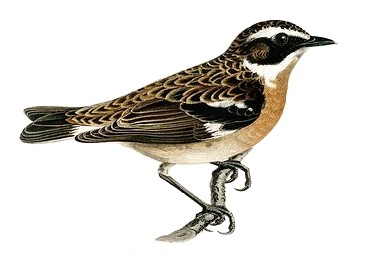
Welcome to part 5 of the Poetry Basics blog series! If you’ve missed any of the previous parts, where I sharing about everything from helpful poetry-writing resources to how to actually write a memorable poem, you can find all of those parts here:
Part 1 || Part 2 || Part 3 || Part 4
Alright! Let’s move on to today’s post which is about editing your poem – because Now You Are The Editor! But first, a quick note, because I know that not everyone writes the same. 😉
A Note on Writing/Editing Methods
It should be pointed out that writers and poets all have different ways of approaching their work. Some prefer to edit as they write, while others declare it wrong. In my experience, I have found it helpful to do some editing while I write, but if this is not your preferred method, feel free to do it however works best for you.
How I Edit My Poetry
When it comes to me editing my own poetry, I will often change a bit here and there while I’m actually writing it, but the bulk of the editing I save for later. If time permits, I like to wait at least an hour or two, get up, do something, think of something else. I like to have a clear mind when I set about editing. Often I’ll even wait till the next day before I try to edit my piece.
When I do sit down to do the actually editing, I’ll read through my piece first. It is a good idea to read it aloud or at least whisper it to yourself instead of just reading it in your head. Actually speaking it, as opposed to reading it mentally, will help you find a lot of the problems.
After pinpointing a word that doesn’t fit right or a line that doesn’t flow properly, I set to work editing that specific part. Sometimes when I am unable to find a way to make a certain part flow better, I will simply remove it entirely. My poem “Cottage in the Woods” (found in this post) originally had four stanzas. But I removed one when I realized that it didn’t flow with the others.
Editing Round Two
With the first round of editing accomplished, I will sometimes let the poem sit a while longer before reading through it again to see if it still needs work. Usually, I’m able to get it fixed with one round of edits, but there are always those poems that prove to be a little tougher to finish.
If a poem makes it to round two of editing and I’m still having trouble with it, I’ll often ask for advice from a sibling. I’ll read it out loud and hear what they have to say about it. Sometimes the solution will even present itself just from reading the poem aloud to some else. And if my sibling can’t come up with any suggestion, I’ll give them some of my own ideas on how to edit the piece just to see which option they like best. Normally, we’ll agree on something, and that is how I will end up editing it. It’s like getting free editing advice!
If you don’t have siblings who are available to critique your work (or you don’t feel like asking them for whatever reason), it works perfectly fine to ask someone else – a friend or another relative. You can even just read it aloud to yourself and go from there!
Conclusion
Once you’ve finished writing your poem, it’s a good idea to set it aside for a bit before editing. When editing, read your piece aloud. This will help find any problem areas, which you can then tackle. And if one round of editing isn’t enough, you can always do as many rounds as needed. Asking advice from family or friends can also be very helpful.

P.S. You can also follow me at my other blog, Kenmore Pines 1, here.
To learn more about this blog check out my blog launch post here.

Thank-you for the good advice.
My pleasure, Veronica!